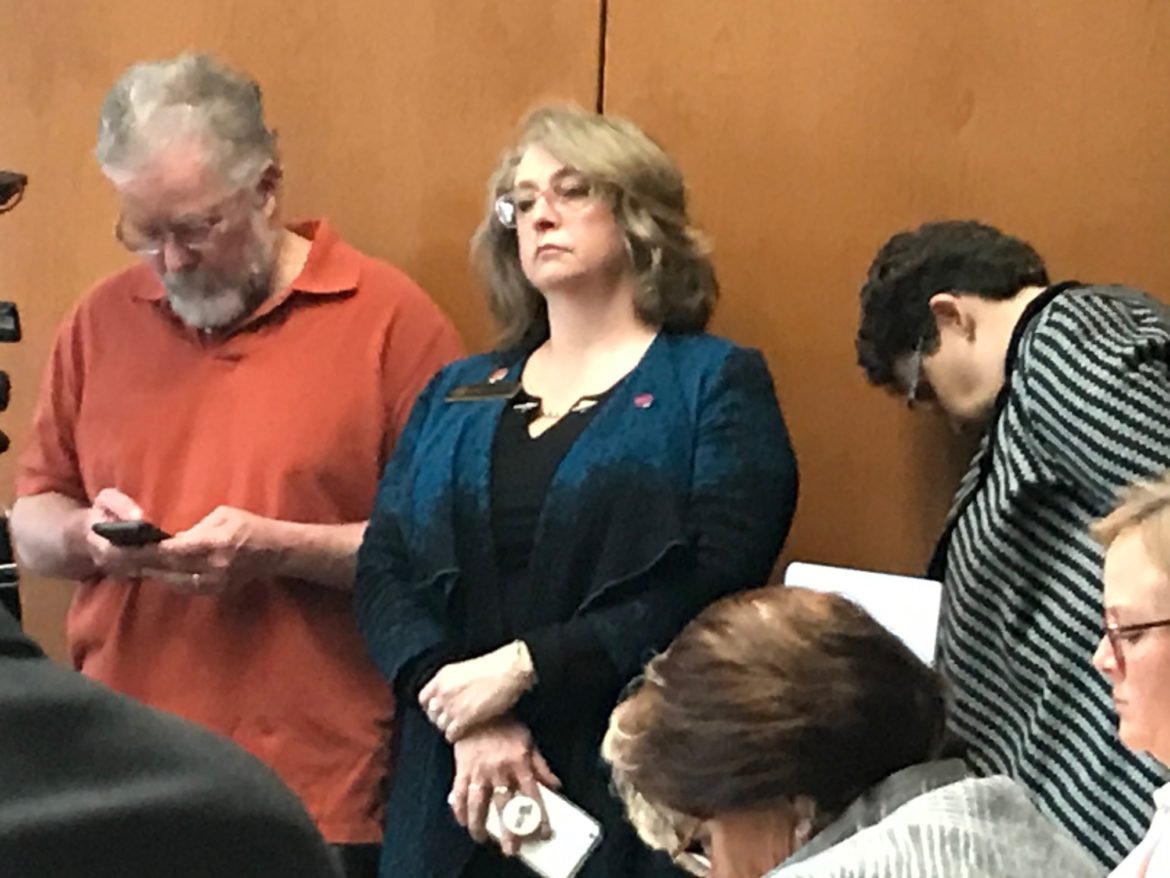By GARRY RAYNO, InDepthNH.org
CONCORD — Victims of childhood sexual abuse urged lawmakers Tuesday to eliminate the statute of limitations on sexual abuse.
Children with that traumatic experience need time to heal before disclosing what happened and that is often longer than the current time limit for prosecution of 22 years, said Catherine Devine, Assistant Hillsborough County Attorney.
“Closing the courthouse door on an arbitrary time
limit does not change prosecution,” Devine told the House Criminal Justice and Public
Safety Committee on Tuesday. “A victim should always be heard.”
House Bill 1586 would eliminate any time limit for prosecuting sexual assault
cases while the current limits vary depending on the crime and circumstances.
Victims of sexual assault, prosecutors, county attorneys and child advocates supported the bill, while the state’s defense attorneys association and the American Civil Liberties Union-New Hampshire opposed the bill during the hour-and-a-half hearing saying it tilts the scales of justice in the state’s favor.
“Make no mistake,” said the bill’s prime sponsor, Rep. Debra Altschiller, D-Stratham, the current statutes of limitations “are a gift to perpetrators across our state.”
The state’s laws are “wildly skewed toward the accused,” she said, with the state’s burden of proof so high.
Altschiller noted private schools and the Catholic Church simply waited “for the clock to run out,” before the extent of their problems with child sex abuse was known.
The statute of limitations for misdemeanor sexual assault is one year, Altschiller noted, and said it takes years for victims to recover.
Laura Bilodeau, a professor at Manchester Community College and a former police officer, told of 10 years of sexual abuse by her stepfather that began when she was eight years old.
“How can you make it a child’s responsibility to speak
up,” she said, “when I did not have the words to describe what my stepfather
was doing to me.”
She said she kept the abuse secret for 10 years after it ended, but when she
did come forward the response was mishandled.
“I am still angry he was never held accountable for what he did,” Bilodeau said, and by coming forward she lost her family.
By the time her experiences were taken seriously, she said, the statutes of limitations had expired, and he lived out his life in his luxurious condominium.
“If it had been 20 years earlier,” Bilodeau said, “he
would have died in prison and I would still have a family.”
Bill co-sponsor Rep. Wendy Chase, D-Rollinsford, was the victim of a sex crime
when her brother-in-law photographed and videotaped her and her husband when
they stayed with her sister.
The camera in the guest bedroom “was motion
sensitive,” she said, “so he filmed everything.”
While she testified against her brother-in-law, the statute of limitations has
run out for many of the women he photographed, Chase said, and that is
disheartening because they have no voice.
“It changed my whole life,” she noted. “When I see
someone with a camera I am concerned. I keep the shades drawn in my house. That
is why there should be no statute of limitations.”
But Katherine Cooper, Executive Director of New Hampshire Association of
Criminal Defense Lawyers, said statutes of limitations have existed for
centuries.
“It’s nearly impossible to defend yourself against accusations like this after a long time has passed,” she told the committee. “How do you come up with the evidence to defend yourself.”
Jeanne Hruska, political director of the ACLU-NH, said the key to the time limits is due process which she called a pillar of the justice system.
“Statutes of limitations are the guardrails and
components of the justice system,” Hruska said. “Over time, evidence is lost
and so are witnesses.”
She challenged anyone to know where they were 20 years ago on March 3.
“The longer time passes between the alleged offense
and the prosecution,” she said, “the more you go into the territory toward
injustice.”
Statutes of limitations are a balance, and without them the balance tips in
favor of government, she said. “It’s about when the awesome power of government
can be unleashed on someone.”
But another bill sponsor, Rep. Casey Conley, D-Dover, said eliminating statutes
of limitations gives victims of childhood sexual abuse a chance at justice no
matter how much time has passed.
He said he was the victim of sexual abuse at the hands of his uncle and kept that a secret for almost two decades.
“My uncle is deceased, and he no longer can hurt
anyone,” Conley said. “My uncle left a trail of victims over a number of
states.”
Rockingham County Attorney Patricia Conway said eliminating the statute of
limitations would not change how cases are prosecuted and how prosecutors
decide whether to go forward with a case or not.
She said sometimes they have to tell victims they cannot prosecute a case because the statute of limitations has passed.
Conway said it often takes years for victims to disclose what happened. They go through pain and have to process what happened in their own time, she said, and that is why there should be no statutes of limitations on sexual assault.
“With the statute of limitations we currently have, we are protecting the perpetrator,” Conway said. “We are putting people at risk, we are putting society at risk, we are putting children at risk, and why would we want to do that.”
Currently eight states and the District of Columbia have removed statutes of limitations for sexual crimes, and six other states are debating the issue this year, Altschiller said. “We’re not heading into uncharted territory here.”
The committee did not make an immediate recommendation on the bill.
Garry Rayno may be reached at garry.rayno@yahoo.com.






